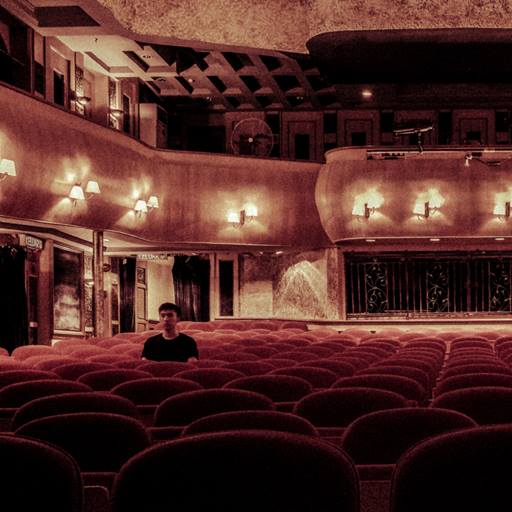A new research project seeks to uncover the true impact of COVID-19 on theatre-makers across the UK – how they are surviving and the impact of restrictions on how they approach their work.
The impact of COVID-19 on theatre institutions has been well-documented, but less is known about the individual freelancers who make up the majority of the industry, driving its creative work, and delivering value to the UK economy.
Manchester Metropolitan University has partnered with experts from the University of Essex, who are leading the study, and Queen’s University Belfast, on an 18-month research project that charts the wider impact of the pandemic on theatre-makers across the UK.
The study will examine whether the effects of the pandemic vary, based on factors like age, background, ethnicity and location.
It will explore how theatre-makers are supporting each other, how social distancing is impacting creative practice, and how restrictions are influencing the type of work people are creating. It is hoped that the findings will feedback to government to help inform future policy.
Dr Joshua Edelman, Senior Lecturer in Drama and Contemporary Performance at Manchester Metropolitan University, said: “Of course, the pandemic has been devastating for the theatre industry across Britain, and it’s often freelancers who are hit the hardest. What happens to freelancers now is going to shape their careers – and the whole theatre field – for decades to come. That makes this a key moment for research and intervention.
“The situation that independent theatre workers find themselves in, and the structures in place to support them, are very different across the UK. Some places have found ways of harnessing the inventiveness and creativity of freelancers to start building up a new, post-pandemic theatre.
“By working with a team of researchers and on-the-ground partners from across the UK, we can find examples of best practice and learn more about what works. These are very, very difficult times, but we want to understand how the resilience that freelancers have always had can help us all find a healthy way forward.”
Dr Holly Maples, from East 15 Acting School, part of the University of Essex, who is leading the new study, said: “The entire theatre industry has taken an enormous hit and I think we’ll still be seeing the effects two, three years down the line.
“We’ve heard a lot about the impact on theatres and theatre companies, but what about the actors, the writers, the producers, the technicians, the designers?
“The pandemic has had a catastrophic effect on livelihoods but the impact is not only financial.
“COVID-19 is really transforming what it means to be a theatre freelancer, culturally and socially. The current restrictions are challenging established approaches to collaboration, to artistic and creative development, and to audience engagement.”
A 24-person steering group will be split evenly between individual freelancers and networks. Partners include regional theatre networks and Equity, the actors’ union.
The initial phase of the study will comprise a review of existing research on the impact of COVID-19. An industry survey will be completed in autumn 2020, followed by focus groups and one-to-one interviews and then a final report.
This grant is funded by ESRC as part of UK Research and Innovation’s rapid response to COVID-19.
If you are a UK-based freelance theatre-maker and wish to participate in this study, you can contact Dr Holly Maples directly.







